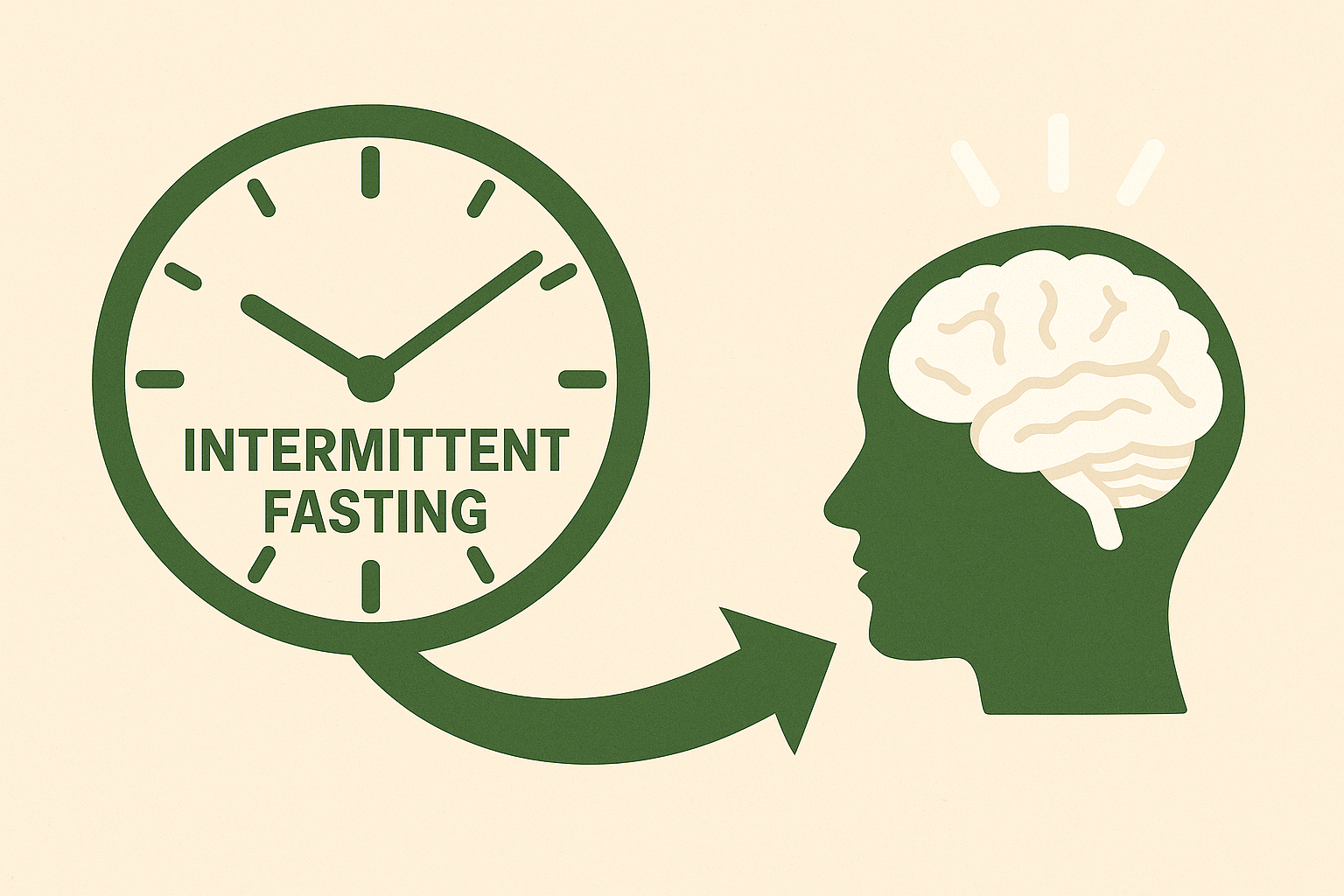Intermittent fasting (IF) has become one of the most popular wellness practices in recent years. For many, it offers a simple way to improve energy, manage weight, and support long-term health. One of the most exciting areas of research is its potential to boost cognition and brain health.
What Is Intermittent Fasting?
Intermittent fasting isn’t about what you eat, but when. The most common methods are:
- 16:8 → fasting for 16 hours, eating during an 8-hour window.
- 14:10 → a gentler version, especially good for beginners and women.
- 5:2 → eating normally for 5 days, reducing calories significantly on 2 days.
How Fasting Benefits Cognition
🧠 Improved mental clarity → many people experience sharper focus and less brain fog while fasting, as the body shifts from glucose to ketones, a cleaner energy source for the brain.
⚡ Enhanced learning and memory → animal and human studies suggest fasting increases brain-derived neurotrophic factor (BDNF), a protein that supports learning, memory, and the growth of new neurons.
🛡️ Neuroprotection → fasting may help protect against age-related decline and diseases like Alzheimer’s by reducing oxidative stress and inflammation.
🌿 Better mood stability → by balancing insulin and blood sugar, fasting may reduce mood swings and improve emotional regulation.
Teas That Support Focus While Fasting
Zero-calorie teas that boost clarity without breaking your fast.
✅ Best Choices
- Green tea — gentle caffeine, improves focus, and may increase BDNF.
- Black tea — stronger caffeine kick, enhances alertness.
- Ginger tea — reduces hunger, supports concentration.
- Peppermint tea — refreshing, can improve mental clarity.
- Rooibos tea — caffeine-free, calming yet antioxidant-rich.
⚠️ Avoid
- Fruit teas with dried fruit (may release sugars).
- Sweetened teas or those with stevia/artificial sweeteners (can trigger insulin response).
- Teas with milk or plant milk added (contain calories).
References
- Mattson, M. P., et al. (2018). Intermittent metabolic switching, neuroplasticity and brain health. Nature Reviews Neuroscience, 19(2), 63–80.
- Longo, V. D., & Mattson, M. P. (2014). Fasting: Molecular mechanisms and clinical applications. Cell Metabolism, 19(2), 181–192.
- de Cabo, R., & Mattson, M. P. (2019). Effects of intermittent fasting on health, aging, and disease. New England Journal of Medicine, 381, 2541–2551.

